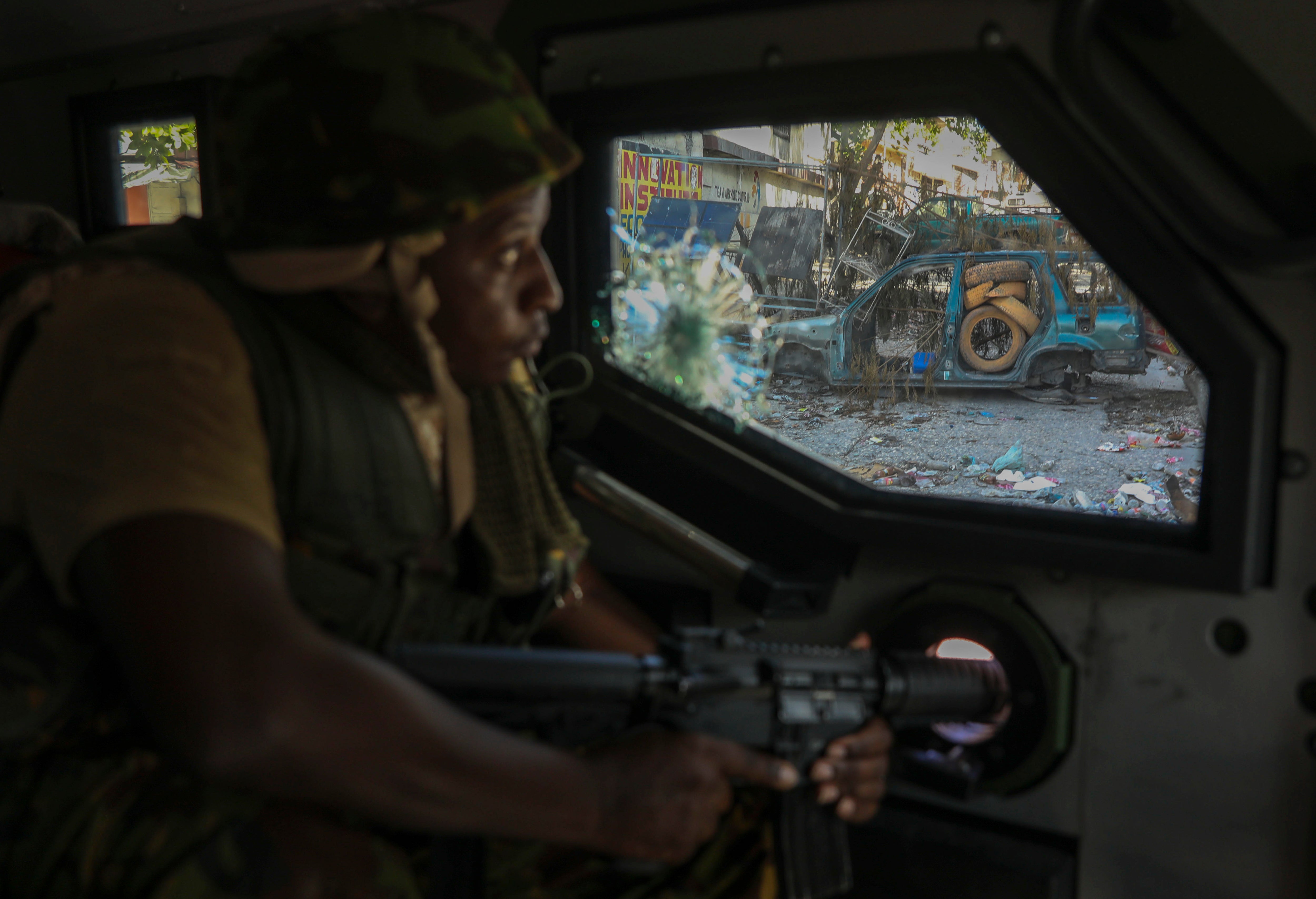Haitians demand protection after gang leader massacres dozens of people to avenge son's death
A coastal community in Haiti’s capital is reeling days after a gang leader was accused of killing more than 100 people to avenge his son’s death

A gang leader accused of killing more than 100 people in Haiti's capital to avenge his son's death was still persecuting residents on Tuesday, according to a rare witness account.
Mackenson Cangé, whose father was among the victims, told Magik9 radio station that residents in the gang-controlled area said gunmen were still hunting down older people and killing younger ones as well.
“I believe in the justice of my country. But I’m tired of the government (only) condemning these massacres. We need to take action,” he said.
Few details about the two-day killing spree in the community of Cité Soleil on Friday and Saturday have been made public. Residents have not been allowed to leave, and no images of the killings have been shared on social media like they often have been in previous incidents.
A spokesman for Haiti’s National Police did not return messages for comment on Tuesday. Neither did the leader of a U.N.-backed mission led by Kenyan police that deployed earlier this year to help quell gang violence in Haiti.
For years, police have been unable to penetrate the gang-controlled area, and even human rights groups have not been able to access it this time, relying on witnesses who live there and often refuse to talk for fear of being killed.
Two local human rights groups say more than 100 people were killed on Friday and Saturday, while Volker Türk, U.N. high commissioner for human rights, said at least 184 people were killed.
It isn't clear how they determined the number of victims. Numbers vary wildly following massacres in Haiti since they occur in areas with limited or no access.
The killings blamed on gang leader Micanor Altès, also known as Monel Felix and Wa Mikanò, were triggered by his son’s illness and eventual death, according to the National Human Rights Defense Network and the Cooperative for Peace and Development.
The two rights groups said Altès blamed Vodou religious leaders and older people in the community of practicing witchcraft and harming his son.
On Tuesday, Haiti’s Office of Citizen Protection decried the killings, noting the victims were between 60 and 80 years old.
The ombudsman agency said “sorcery accusations never justify violence or summary executions. Older people, who have contributed so much to society, deserve respect and protection.”
It called on police and judicial officials to react quickly and identify all those responsible.
The Haitian Bridge Alliance, a U.S.-based nonprofit, also called for a thorough investigation on Tuesday as it demanded that the government improve security.
“This massacre is a profound tragedy that underscores the escalating crisis of gang violence and lawlessness in Haiti,” said Guerline Jozef, the alliance's executive director.
Altès controls the coastal communities of Wharf Jérémie, La Saline and Fort Dimanche and is known for robbery, extortion and hijacking of goods and trucks, according to a U.N. report. Experts say he was not known for being as brutal as other Haitian gang leaders.
Cangé said residents in Wharf Jérémie told him that gunmen are still hunting down older people and killing young ones as well.
He said his father, Marcel Cangé, was killed after three men showed up at his home on Friday night and demanded he go with them. The older Cangé was already preparing for bed because he was going to church early Saturday and liked to be punctual. When he requested that the men allow him to put on a shirt and pants, they told him it wasn’t necessary, according to his son.
“I never believed something like that would happen to my father,” Mackenson Cangé said, noting he had lived in that community for 29 years. “My father was assassinated. Stabbed and then burnt.”
Cangé said he personally knows some 30 other people who were killed. His mother and sister, who lived with his father, survived.
“I lost a best friend, someone who supported me my whole life,” Cangé said.
The gang-controlled area, like many others, remains inaccessible to police and other authorities. While the government has pledged to bring those responsible to justice, it wasn’t clear how it planned to do so.
“A red line has been crossed, and the state will mobilize all its forces to track down and destroy these criminals,” the government said in a statement Monday.
More than 4,500 people have been reported killed so far this year in Haiti.
Bookmark popover
Removed from bookmarks